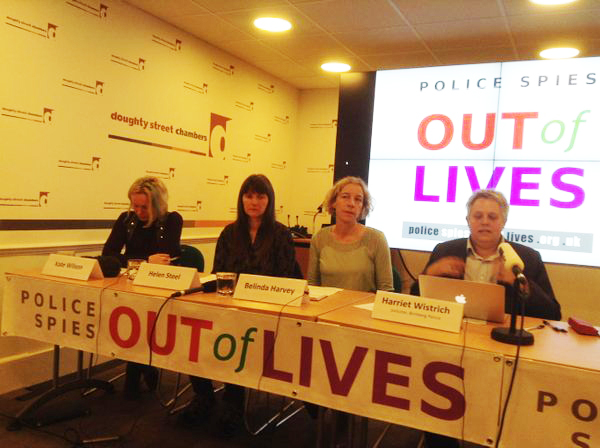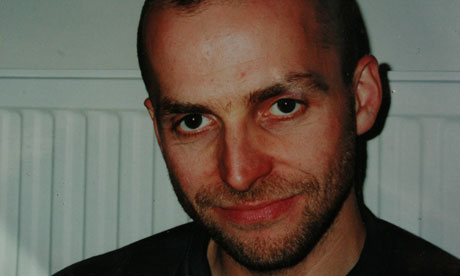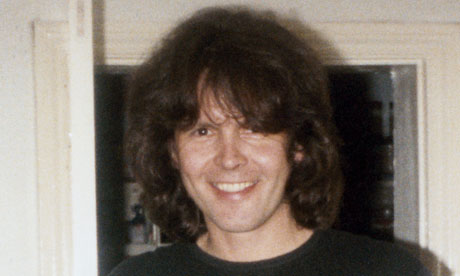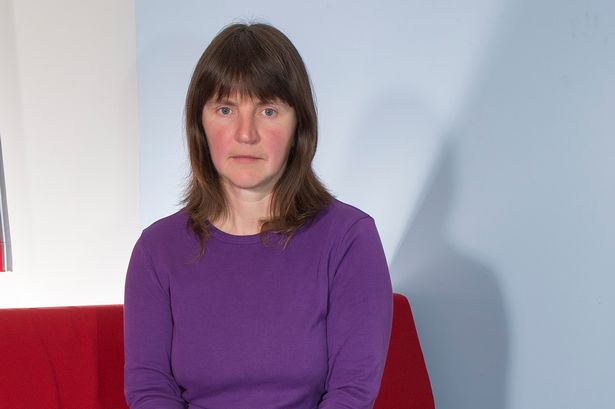Deceived Woman’s Bid to Have Spycops Prosecuted
 A woman who was deceived into a relationship by an undercover police officer is bringing a legal case to have him charged with Misconduct in Public Office as well as sexual offences, including rape.
A woman who was deceived into a relationship by an undercover police officer is bringing a legal case to have him charged with Misconduct in Public Office as well as sexual offences, including rape.
‘Monica‘ was deceived into a relationship by undercover officer Jim Boyling when he was infiltrating Reclaim The Streets in the late 1990s.
She told the BBC:
‘At the time I thought he had genuine feelings for me. But now I look at that and I think actually this man was trained. He was a successful police officer. He was duping us all.
‘And I was encouraged to be intimate and sexual with somebody who I would never ever have got involved with if I had known who he was: if I had known his true motives and his true identity.’
In August 2014 the Crown Prosecution Service announced that it would not be charging Boyling or other spycops with misconduct or sexual offences. Monica is now taking the CPS to court to challenge that decision with a judicial review.
REVISITING THE FACTS
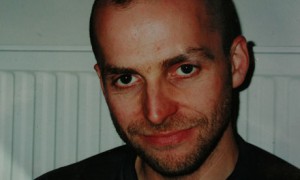
Jim Boyling whilst undercover in the 1990s
Monica began a civil claim against the Met in early 2016, in the mould of those already brought by other women who had been similarly deceived who have received an unpredented apology from the police. Whether what the officers did constitutes rape is a separate matter from such civil cases.
The fact that the women consented to sexual relationships at the time they happened is irrelevant – consent can be vitiated by later knowledge. There are several recent instances of women deceiving other women into having sex by pretending to be men, all of which have ended in convictions, including some with lengthy prison sentences.
Those circumstances are uncommon, but Monica’s situation is even more unusual. What these undercover police officers did is so rare – and its exposure rarer still – that we haven’t got a common perception of it, nor an established legal position.
Monica’s lawyer Harriet Wistrich compared it to the women who were convicted for sexual deceit:
‘At the time that relationship was a genuine relationship but subsequently the other person discovered who they really were. Those women were prosecuted by the CPS and imprisoned for those offences. We’re saying, what is the essential difference in a case like this?
Indeed, Wistrich says the spycops are even more culpable for their actions:
‘In this case the officers knew full well what they were doing, they weren’t mentally vulnerable, they were using the resources given to them by the state for an improper purpose, ie for their own gratification, to advance their career, and to make their undercover operation successful.’
In 2014, the CPS cited case law it considered before making its decision. They mentioned that a court decided that a man’s failure to use a condom after he’d said he would could be rape and he should be brought to trial. In another case where a man promised to withdraw before ejaculation, but failed to, it was also decided as being capable of amounting to rape. These cases give us an indication of the threshold of criminal sexual deceit, yet they said the spycops’ deceit wasn’t of the same ilk.
In other words, the CPS expected us to believe that Jim Boyling’s profound, prolonged sexual deception of three women is not worthy of a court case, but that they would prosecute him if he had once failed to use a condom as promised.
It’s plainly nonsense, insulting the intelligence of those who hear it. It betrays the women who were abused and a society that wants to see sexual abuse taken seriously.
BOYLING v POLICE
After his relationship with Monica, Boyling began another relationship with ‘Rosa‘. After his spying ended and he left, a distraught Rosa looked for him for a considerable time.
After she found him he admitted being an undercover police officer:
‘The new tales he told me – of being the partner I knew and slept next to every night, the misunderstanding of his deployment, that he was the only one, that our country doesn’t spy on peace or green movements, of being a turncoat and needing my help to escape the police – they were more believable than the truth.’
‘The unlikely truth was this: my life partner was fabricated by the state. He never existed. I was pregnant within two weeks of his reappearance and bore children by the actor, a random police officer, who had played my partner.’
They rapidly married and had two children. The marriage broke down quickly as he was controlling and physically violent. She fled with the children to a women’s shelter.
When the spycops scandal broke in early 2011 and Boyling’s relationship with Rosa was made public, he was suspended from the police. He faces disciplinary charges for not informing his managers of the extent of the relationship and for revealing secret information to her.
This week, more than seven years into his suspension, his disciplinary hearing is going ahead. He has chosen not to attend, nor contest the charges in any way.
However, he has given an angry interview to Police Community (for the website’s account-holders, but readable here without signing up), saying:
‘The disciplinary charge from the Met specifies that I had a relationship which constituted misconduct because it was ‘without a police purpose’. The position of the Met appears to be that a relationship entered into as an operational tactic is acceptable, but a genuine one resulting in marriage and children constitutes misconduct.’
As Boyling well knows, even with his glossing of the facts, no form of relationship between undercover officers and the women they spy on is acceptable.
Chief Constable Mick Creedon unequivocally explained in 2014:
‘There are and never have been any circumstances where it would be appropriate for such covertly deployed officers to engage in intimate sexual relationships with those they are employed to infiltrate and target.
‘Such an activity can only be seen as an abject failure of the deployment, a gross abuse of their role and their position as a police officer and an individual and organisational failing.’
The Met have since gone further, conceding that these relationships were a violation of human rights, including the right to privacy and the right to freedom from torture, inhuman or degrading treatment.
With such a shocking admission, it is outrageous that nobody is being held responsible. If these men were not police officers they would surely already be in jail.
Monica said:
‘I am appalled by the hypocrisy of police and government, who on one hand wring their hands, apologise, say this was terrible and must never happen again, yet on the other provide no disclosure, protect the perpetrators, and hold no one to account. The whitewashing of these serious human rights abuses must stop.’

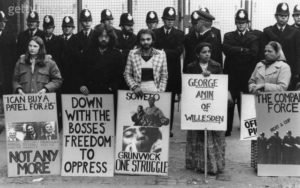 Spycops and Strikers is a public event in London on 15th February, part of a series of
Spycops and Strikers is a public event in London on 15th February, part of a series of 